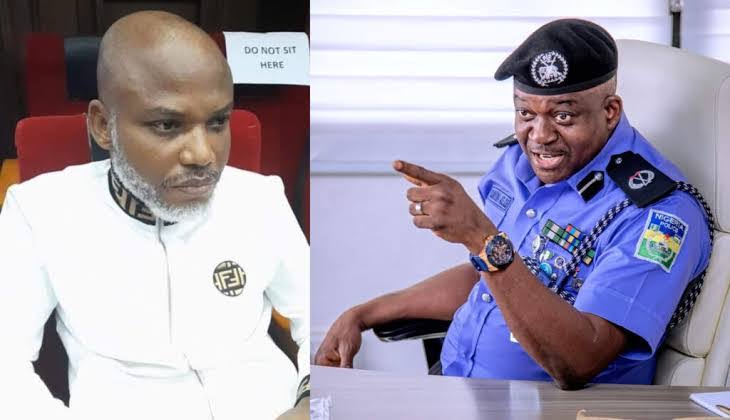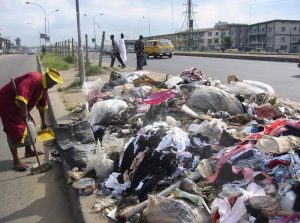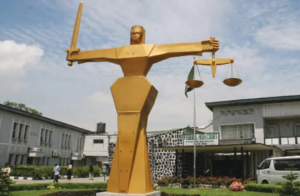
Leader of the Indigenous People of Biafra (IPOB), Mazi Nnamdi Kanu, has filed a N20 billion lawsuit against the Nigeria Police Force Public Relations Officer (PRO), Assistant Commissioner of Police (ACP) Olumuyiwa Adejobi, over alleged defamatory remarks.
The suit, filed at the Federal Capital Territory (FCT) High Court on Tuesday by Kanu’s lead counsel, Chief Aloy Ejimakor, accuses Adejobi of defaming his character by labeling IPOB a “proscribed terrorist organization” in a press statement issued on January 25, 2025.
According to the court documents, Adejobi’s statement linked IPOB and its security wing, the Eastern Security Network (ESN), to violent crimes in Imo State, including the attack on the Owerri Correctional Centre in April 2021, the killing of five policemen in December 2022, and the burning of the Arondizuogu Police Station in February 2022. The police further claimed to have neutralized six IPOB/ESN operatives in a recent raid, recovering firearms, ammunition, and explosive devices.
Kanu, however, argues that the statement wrongly associates him with terrorism and criminal activities, thereby damaging his reputation both locally and internationally. His suit claims that Adejobi’s remarks have caused significant harm to his credibility, integrity, and ongoing legal battles regarding IPOB’s classification as a terrorist organization.
In his lawsuit, Kanu is seeking several legal remedies, including: A public retraction of Adejobi’s statement, a written apology, published in three major Nigerian newspapers: The Sun, Daily Trust, and Vanguard, perpetual injunction restraining Adejobi from making further defamatory statements about him, payment of N20 billion in damages for reputational harm and full coverage of legal expenses.
The IPOB leader argues that the publication of these alleged falsehoods was deliberate, malicious, and intended to discredit him, particularly as he continues to fight legal battles concerning his detention and the proscription of IPOB.
Kanu’s lawsuit adds another layer to the ongoing legal and political debate surrounding IPOB’s status and his detention. IPOB was proscribed as a terrorist group by the Nigerian government in 2017, a designation that Kanu and his supporters have repeatedly challenged. His continued detention has sparked widespread calls for his release, particularly from political and human rights groups in the Southeast.
As the case unfolds, it remains to be seen whether the court will rule in Kanu’s favor or uphold the police’s stance on IPOB’s classification. The legal battle could also have broader implications for law enforcement’s handling of IPOB-related cases in Nigeria.








